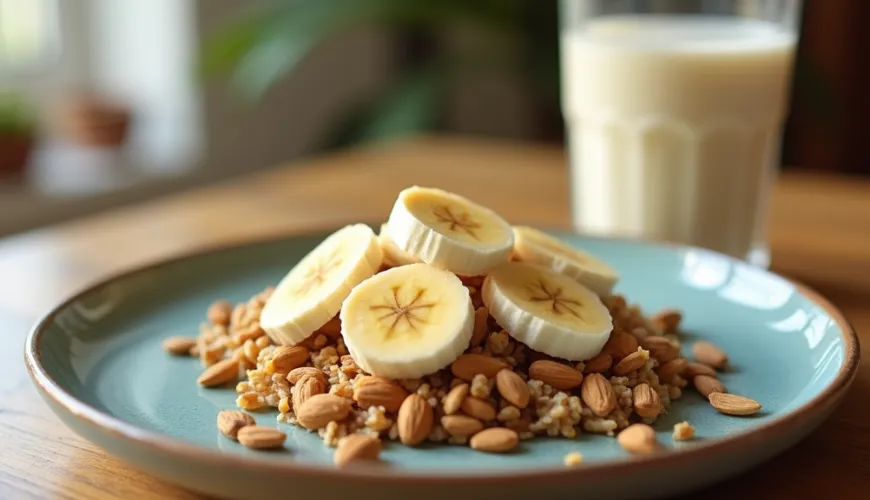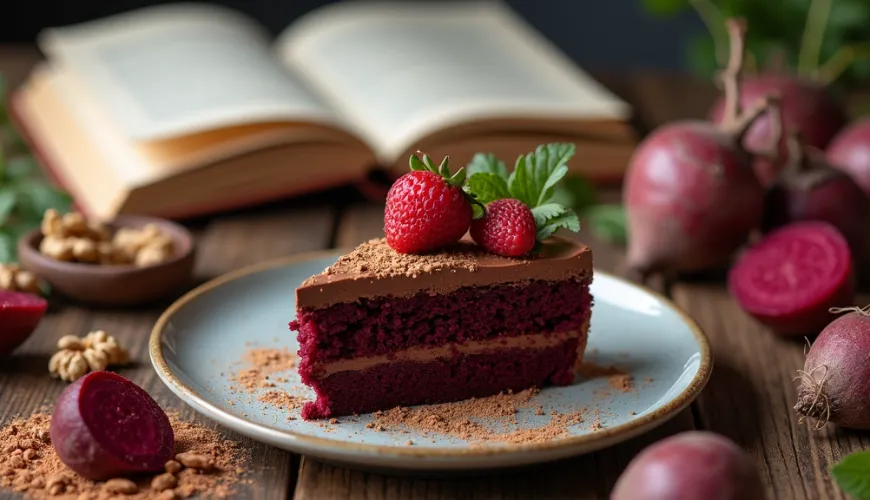
Managing reflux with an anti-reflux diet is easier than you think

Antireflux Diet - When Food Helps Against Heartburn
Heartburn. Unpleasant, burning sensations behind the breastbone that come unexpectedly and often disrupt the daily routine. It's not just a matter of a poorly chosen lunch or overly spicy dinner – for many, it's a chronic problem known as gastroesophageal reflux disease (GERD), which requires not only medical care but especially lifestyle changes. This is where the antireflux diet comes into play, a way of eating designed to help alleviate or even eliminate reflux symptoms.
More precisely, the antireflux diet is not a fashion trend. It's not a short-term trend or a drastic restriction promising miraculous results. It's a long-term, sustainable approach to eating that takes into account not only the composition of the menu but also the way of consumption, portion sizes, and meal timing throughout the day.
What Happens in the Body During Reflux?
To understand why certain foods help and others don't, it's good to remember what actually happens during reflux. Between the esophagus and the stomach is the lower esophageal sphincter – a muscle that prevents food and stomach acids from returning to the esophagus. If this sphincter does not function properly or is weakened, the acidic content of the stomach reaches where it shouldn't. The result is the familiar burning sensation, sour taste in the mouth, bloating, chest pain, or even a chronic cough.
And this is where the antireflux diet has its justification. Consuming inappropriate foods can weaken the sphincter or increase stomach acid production, worsening reflux. Conversely, a well-composed diet can significantly alleviate symptoms and improve the quality of life.
What Does the Antireflux Diet Recommend?
When trying to keep stomach problems at bay, the main thing to remember is to avoid foods that increase stomach acid production or relax the esophageal sphincter – these are the main culprits of unpleasant heartburn or reflux. Instead, it's sensible to opt for light and gentle meals that don't burden digestion much. A great choice is cooked vegetables like broccoli, pumpkin, zucchini, or carrots – not only do they easily pass through the stomach, but they also provide a lot of vitamins.
From fruits, ripe bananas, melons, or pears are recommended, just nothing acidic or unripe that could irritate the mucous membrane. When it comes to carbohydrates, stick to oatmeal, whole grain bread, or plain rice – these are easily digestible and filling. As for proteins, opt for lean meats like chicken or turkey, or boiled eggs or tofu if you prefer plant-based food. And don't forget about hydration – hot herbal teas, such as lemon balm, chamomile, or fennel, can soothe the stomach nicely.
Try our natural products
While you shouldn't completely eliminate dairy products, choose low-fat options or alternatives like almond milk – they are gentler on digestion and often better tolerated. Altogether, these form a diet that gives your digestive system a chance to rest and function without issues.
If acidic reflux troubles you, it’s better to avoid foods that can irritate the esophageal mucosa or disrupt the proper functioning of the sphincter. Problematic items include spicy and fried foods, tomatoes and products made from them, onions, garlic, or peppers. Similarly, chocolate, mint, coffee, alcohol, carbonated drinks, fatty meats, processed meats, and full-fat dairy products are not ideal – basically, things that don't give the stomach much peace.
An interesting real-life example is the story of Mrs. Hana, who suffered from reflux so severely that she woke up at night with pain and a cough. After months of trying different diets, she switched to a simple regimen – three smaller meals a day, no coffee after 2 PM, and the last dinner no later than 6:30 PM. Within two weeks, the night troubles eased, and after a month, they almost disappeared. She admits that changing the diet wasn't easy, but the benefits of peaceful sleep and better digestion were worth it.
When Changing What You Eat Isn’t Enough
In an antireflux diet, it’s not just about the composition of the menu, but also about the way and rhythm of eating. The stomach and esophagus react not only to what we eat but also to how quickly and how much we eat at once.
Large portions of food stretch the stomach and increase pressure on the sphincter, making it easier for contents to return upwards. Fast eating means worse digestion, more air in the stomach, and a higher risk of reflux. It's recommended to eat slowly, chew thoroughly, and avoid overeating.
The timing of the last meal before bedtime is very important. People suffering from reflux should avoid eating at least two to three hours before lying down. And if reflux occurs mainly at night, simply elevating the head of the bed by a few centimeters can help – gravity plays a role in digestion too.
Myths and Realities Around the Antireflux Diet
Although there are general recommendations on what to eat and avoid, every body reacts differently. Some people may be bothered by even healthy foods like tomatoes or citrus, while others are not. It’s important to listen to your body and even keep a short diary of meals and symptoms, which can help identify individual triggers.
A common misconception is the belief that an antireflux diet means only dry bread and steamed vegetables. The truth is, the menu can be varied and delicious – the key is to choose the right ingredients and methods of preparation. Instead of frying, meals can be baked, steamed, or boiled. Spices can be replaced with herbs like basil, thyme, or marjoram, which do not irritate the mucous membrane.
Another myth concerns milk – while some people claim that a glass of milk helps with heartburn, it can actually harm others. The explanation lies in the fat content – full-fat milk can worsen reflux, while plant-based alternatives (e.g., almond milk) are often better tolerated.
Antireflux Diet in Practice
So, what might a daily menu look like that is gentle on digestion and yet tasty? Here is an example:
- Breakfast: oatmeal with banana and almond milk, a cup of chamomile tea
- Snack: rice cake with avocado
- Lunch: baked chicken breast with mashed potatoes and steamed broccoli
- Snack: pear and a handful of almonds
- Dinner: vegetable soup with lentils, rye bread
When following an antireflux diet, mental well-being is also important – stress can affect digestion more than it seems. Regular exercise, breathing exercises, or even a short walk after a meal can bring relief just as much as the right food. As the well-known nutrition specialist Dr. Kateřina Cajthamlová says: “Healthy digestion doesn’t start in the stomach, but in the head.”
Changing eating habits is never easy, but when it comes to health, it's worth trying. The antireflux diet can be a long-term solution that not only alleviates heartburn but in many cases completely turns around the unpleasant course of reflux. And it takes little – to listen to your body and choose food that benefits it.






